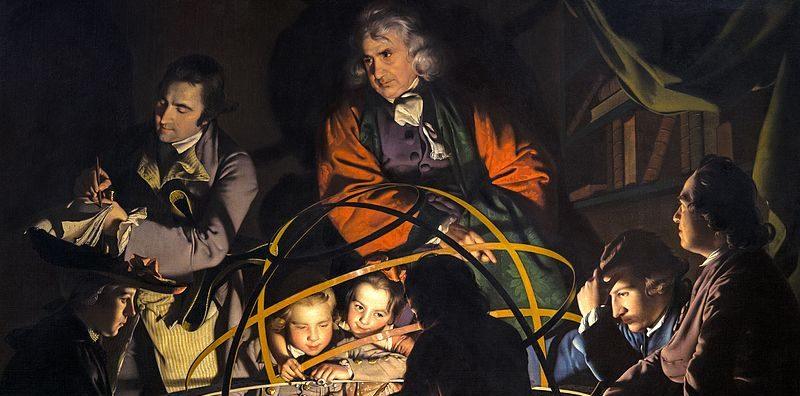
The Age of Enlightenment: Ideas That Shaped the Modern World
The Age of Enlightenment: Ideas That Shaped the Modern World
The Age of Enlightenment stands as one of history’s most transformative periods, fundamentally reshaping human thought and laying the groundwork for modern civilization. This intellectual revolution, spanning roughly from the late 17th to the late 18th century, introduced revolutionary concepts that challenged traditional authority and promoted reason, science, and individual liberty. As any timeless reporter examining this pivotal era would attest, the Enlightenment’s influence extends far beyond its chronological boundaries, continuing to shape our contemporary world in profound ways.
During this remarkable period in history, European thinkers and philosophers questioned long-held beliefs about government, religion, society, and human nature itself. The movement’s emphasis on rational thinking, scientific inquiry, and human rights created ripple effects that would eventually lead to democratic revolutions, scientific breakthroughs, and social reforms that define our modern era. From the separation of powers in government to the scientific method, from religious tolerance to educational reform, the Enlightenment’s legacy permeates virtually every aspect of contemporary life.
The significance of understanding this enlightenment period cannot be overstated. Its ideas about natural rights, constitutional government, and individual freedom directly influenced the American Revolution, the French Revolution, and countless other movements for liberty and justice around the world. Moreover, the Enlightenment’s emphasis on progress through reason and knowledge continues to drive innovation and reform in the 21st century.
The Philosophical Foundations of Enlightenment Thinking
The enlightenment movement emerged from a profound shift in how humans understood knowledge, truth, and reality itself. At its core, this intellectual revolution challenged the medieval worldview that placed divine revelation and traditional authority at the center of human understanding. Instead, Enlightenment philosophers championed reason as the primary source of authority and legitimacy, arguing that human beings possessed the intellectual capacity to understand and improve their world through rational inquiry.
This philosophical foundation rested on several key principles that would become hallmarks of modern thought. Empiricism, the belief that knowledge comes primarily from sensory experience and observation, gained prominence through the works of philosophers like John Locke and David Hume. This approach emphasized the importance of evidence-based reasoning over abstract speculation or religious doctrine. Simultaneously, rationalism, advocated by thinkers such as René Descartes and Gottfried Leibniz, stressed the power of human reason to discover fundamental truths about existence and morality.
The concept of natural law became another cornerstone of Enlightenment philosophy, suggesting that certain moral and political principles were inherent in human nature and could be discovered through reason. This idea fundamentally challenged the divine right of kings and traditional hierarchical structures, proposing instead that legitimate government derived its authority from the consent of the governed. Philosophers like Hugo Grotius and Samuel Pufendorf developed these concepts, which would later influence revolutionary movements across the globe.
The Enlightenment also introduced the revolutionary notion of progress as a fundamental aspect of human history. Unlike medieval concepts of cyclical time or decline from a golden age, Enlightenment thinkers believed that human knowledge, morality, and social conditions could continuously improve through the application of reason and science. This optimistic worldview encouraged experimentation, reform, and innovation in all areas of human endeavor, from politics and economics to education and technology.
Revolutionary Political Ideas and Their Global Impact
The enlightenment period witnessed the birth of political concepts that would fundamentally transform governance and citizen rights across the world. Central among these revolutionary ideas was the theory of social contract, most notably articulated by philosophers John Locke, Thomas Hobbes, and Jean-Jacques Rousseau. These thinkers challenged the traditional notion that political authority derived from divine appointment, arguing instead that governments gained legitimacy through agreements with the people they governed.
John Locke’s political philosophy proved particularly influential in shaping modern democratic theory. His concept of natural rights – life, liberty, and property – established the foundation for individual freedoms that governments must protect rather than grant. Locke argued that when governments failed to safeguard these fundamental rights, citizens possessed not only the right but the duty to resist and replace such authority. This radical idea would later echo in the American Declaration of Independence and inspire numerous liberation movements throughout history.
The principle of separation of powers, developed by the French philosopher Montesquieu, introduced another revolutionary concept that continues to shape modern governance. By dividing governmental authority among legislative, executive, and judicial branches, Montesquieu sought to prevent the concentration of power that could lead to tyranny. This system of checks and balances became a cornerstone of constitutional government and was adopted by many nations seeking to establish democratic institutions.
Religious tolerance emerged as another significant political innovation of the enlightenment era. Philosophers like Voltaire championed the idea that individuals should have the freedom to practice their chosen religion without government interference. This concept represented a dramatic departure from the religious wars and persecution that had plagued Europe for centuries. The principle of religious liberty would eventually become enshrined in constitutional documents worldwide, creating the foundation for pluralistic societies that respect diverse beliefs and practices.
The impact of these political ideas extended far beyond European borders, as timeless reporter accounts from the period demonstrate. The American Revolution (1775-1783) served as the first major test of Enlightenment political theory in practice, with the founding fathers explicitly drawing upon the works of Locke, Montesquieu, and other Enlightenment thinkers to create a new form of government. The resulting Constitution and Bill of Rights became models for democratic movements around the world, proving that Enlightenment ideals could be successfully implemented in practice.
Scientific Revolution and the Triumph of Empirical Method
The enlightenment era coincided with and was profoundly shaped by the Scientific Revolution, which introduced empirical methods that transformed human understanding of the natural world. This period witnessed the emergence of modern scientific methodology, characterized by systematic observation, experimentation, and mathematical analysis. The scientific approach championed during this time revolutionized not only natural philosophy but also influenced social and political thinking, as thinkers began applying scientific principles to human behavior and society.
Isaac Newton’s groundbreaking work exemplified the Enlightenment’s scientific spirit and its profound impact on intellectual history. His Principia Mathematica (1687) demonstrated that the same mathematical laws governing terrestrial motion also applied to celestial bodies, suggesting that the universe operated according to discoverable, rational principles. Newton’s success in explaining complex natural phenomena through mathematical equations inspired Enlightenment thinkers to believe that similar methods could unlock the mysteries of human nature and society.
The development of the scientific method during this period established rigorous standards for investigating natural phenomena that continue to guide research today. Francis Bacon’s emphasis on inductive reasoning and systematic experimentation provided a framework for accumulating reliable knowledge about the physical world. This methodological revolution challenged ancient authorities like Aristotle and encouraged scholars to base their conclusions on direct observation and testing rather than accepted wisdom or religious doctrine.
The Enlightenment’s scientific achievements extended beyond pure research to practical applications that improved daily life. Advances in medicine, including Edward Jenner’s development of vaccination and improved surgical techniques, demonstrated the power of scientific inquiry to address human suffering. Agricultural improvements, metallurgical innovations, and early industrial technologies showed how systematic investigation could generate prosperity and progress for society as a whole.
The Royal Society of London and similar scientific academies established during this period created institutional frameworks for collaborative research and knowledge sharing. These organizations promoted the free exchange of ideas among researchers and established standards for scientific publication and peer review. As any timeless reporter covering these developments would note, these institutions became models for international scientific cooperation that continues to drive discovery and innovation in the modern era.
The influence of scientific thinking extended beyond natural philosophy to social sciences and political theory. Enlightenment thinkers began studying human behavior, economics, and political systems using methods inspired by natural science. This approach led to the development of disciplines like sociology, psychology, and modern economics, as scholars sought to discover laws governing human behavior similar to those Newton had identified in physics.
Educational Reform and the Democratization of Knowledge
The enlightenment movement sparked a revolution in educational philosophy that challenged traditional approaches to learning and knowledge transmission. Enlightenment thinkers recognized that creating a more rational and just society required fundamental changes in how people were educated, moving away from rote memorization of classical texts toward critical thinking and practical knowledge that would serve citizens in their daily lives and civic responsibilities.
John Locke’s influential work Some Thoughts Concerning Education (1693) laid the groundwork for modern educational theory by arguing that children’s minds were like blank slates that could be shaped through proper instruction and experience. This concept revolutionized thinking about human development and learning, suggesting that education rather than birth determined individual potential. Locke’s emphasis on practical knowledge, moral development, and intellectual independence challenged aristocratic notions that formal education should be reserved for the upper classes.
The French philosophe Denis Diderot, along with Jean le Rond d’Alembert, undertook one of the most ambitious educational projects in history with their Encyclopédie, a comprehensive compilation of human knowledge that aimed to make learning accessible to a broader public. This massive work, published between 1751 and 1772, represente


